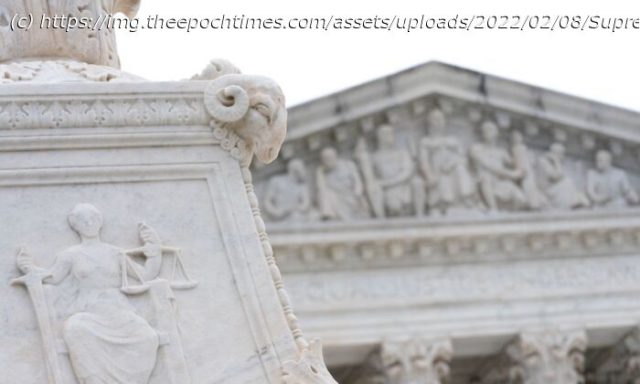Array
Feb. 28, the United States Supreme Court will hear arguments regarding challenges on the legality of the Biden administration’s contested program to forgive billions of dollars in federally-backed student loan debt. Confirmation that the High Court would hear the case came on Dec. 1, 2022.
The Biden administration announced the three-pronged Student Debt Relief program in a Fact Sheet on Aug. 24, 2022, just a little over two months before the Nov. 8, 2022, midterm elections. As previously reported by The Epoch Times, some suggested the program was one of several efforts to “buy votes.”
“Virtually every legal scholar that I have spoken to has said that the president of the United States really doesn’t have the authority to do this, and the people at the White House and Domestic Policy Council know that,” Tom Basile told The Epoch Times. “But they also know they couldn’t get it through Congress so they figure they would do this and let people believe they were going to be able to do this.”
Basile also suggested that this wasn’t the first time the Biden administration has pushed for a program they knew would face legal challenges so they could make Republicans “look like the bad guys by trying to uphold the rule of law.”
“They knew it would be litigated,” Basile noted, adding that the move is “very similar” to what the administration did with the eviction moratorium.
Basile, best known as the host of the Newsmax program “America Right Now,” is an adjunct professor at Fordham University and a member of the New York State Bar Association.
Because of the legal challenges, the Biden administration was forced to delay the implementation of his plan several times.The Arguments
There are currently two legal challenges to Biden’s student loan forgiveness program.
Republicans and conservative groups argue that Biden doesn’t have the power to cancel consumer debt without Congressional approval and that the policy itself is harmful.
In September, the nonpartisan Congressional Budget Office estimated that Biden’s program, if implemented, would cost U.S. taxpayers around $400 billion—a figure that critics say underestimates the scope of the cost that will actually settle upon the shoulders of U.S. taxpayers.
In the meantime, the Biden administration insists that it is acting within the law, arguing that the Heroes Act of 2003 grants the U.S. Secretary of Education the authority to waive regulations related to student loans during national emergencies. The United States has been operating under an Emergency Declaration due to COVID since March 13, 2020.
Biden v. Nebraska
On Sept. 29, 2022, Republican attorneys general in six states—Arkansas, Iowa, Kansas, Missouri, Nebraska, and South Carolina—filed a challenge (pdf), asking the Supreme Court to consider the legality of the Biden administration’s student debt relief program, asserting that the plan exceeds the Secretary of Education’s authority.
While the six states allege that Biden’s student loan forgiveness plan exceeds the Secretary of Education’s authority, the Biden administration argues that the Higher Education Relief Opportunities for Students (HEROES) Act of 2003 authorizes the secretary to waive or modify statutes during or in the aftermath of national emergencies—provides the Secretary of Education the authority to implement the debt relief program.
Home
United States
USA — mix Supreme Court to Hear Arguments on Biden’s Student Loan Forgiveness Plan






